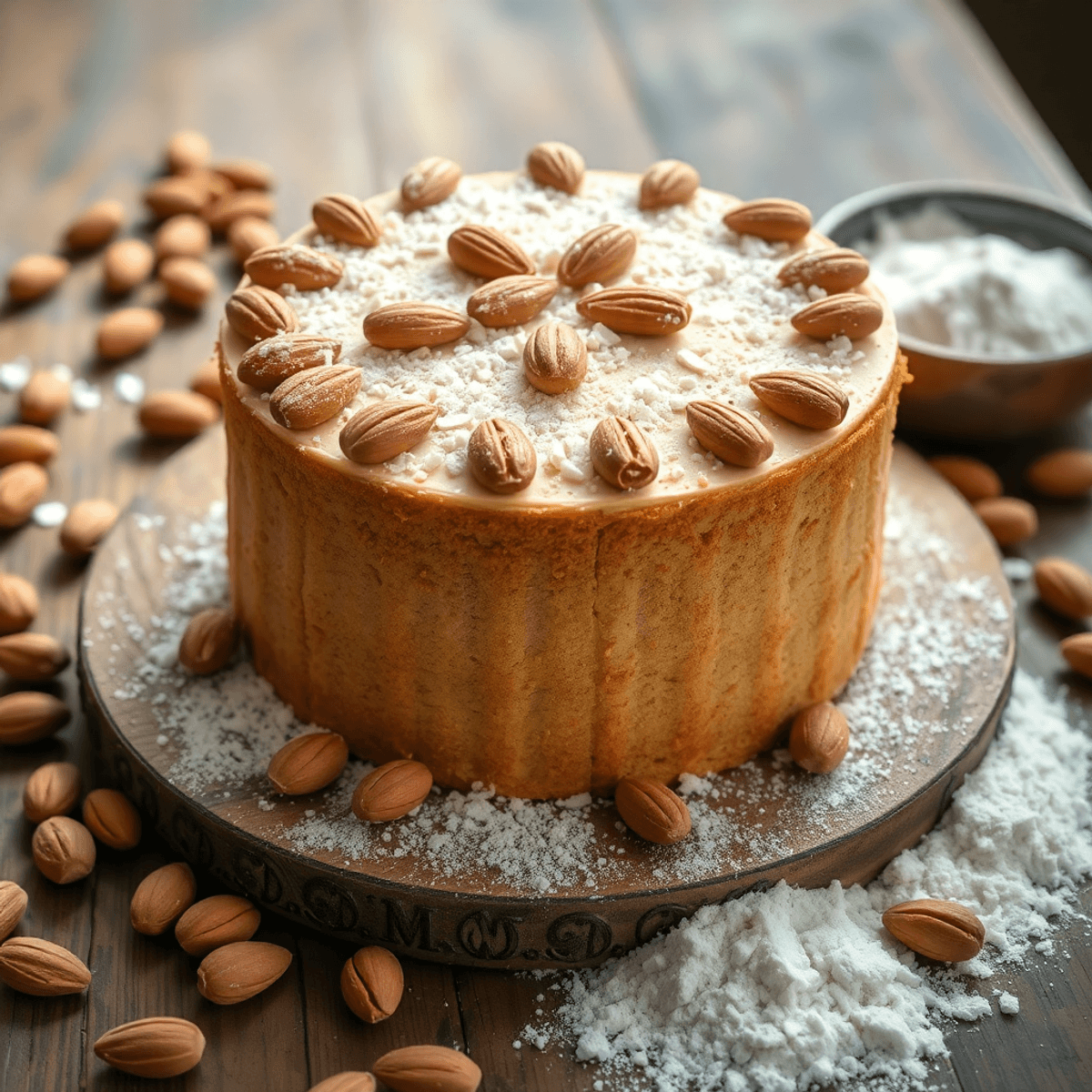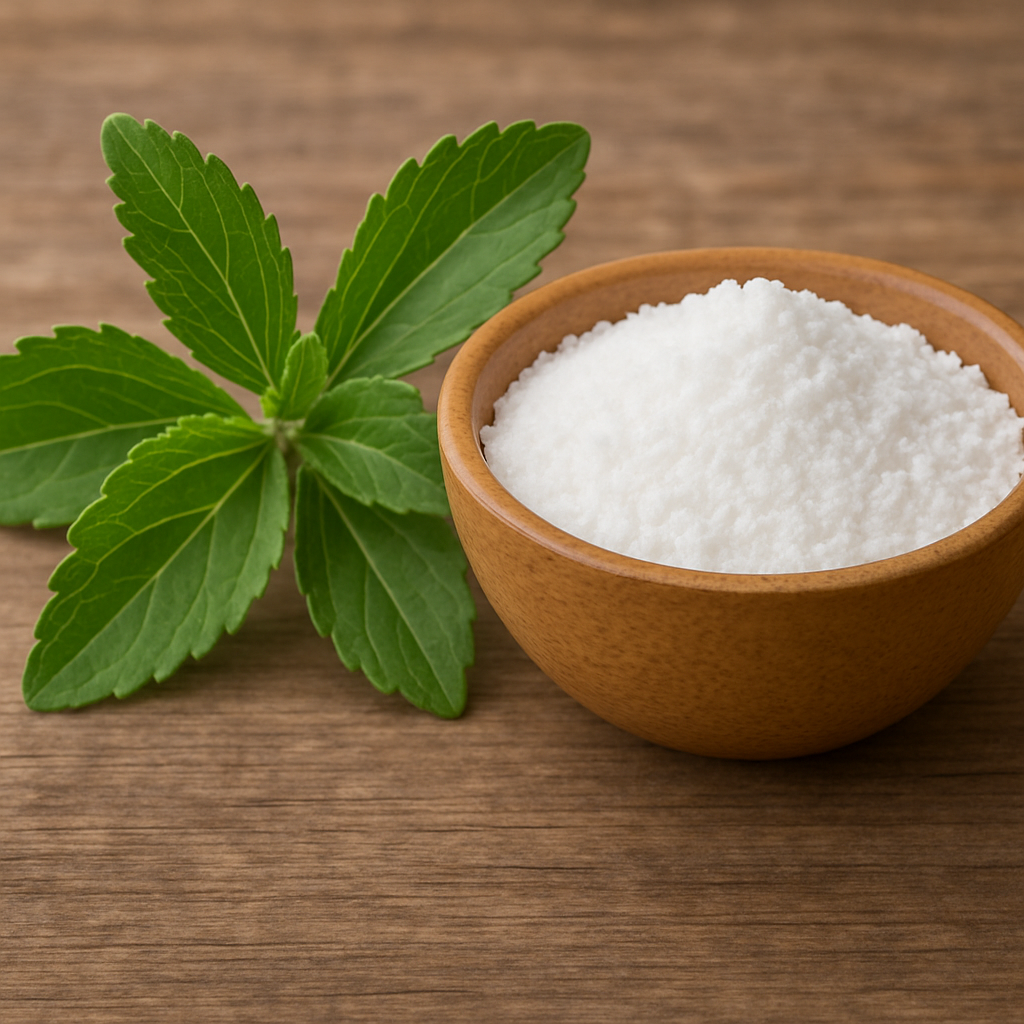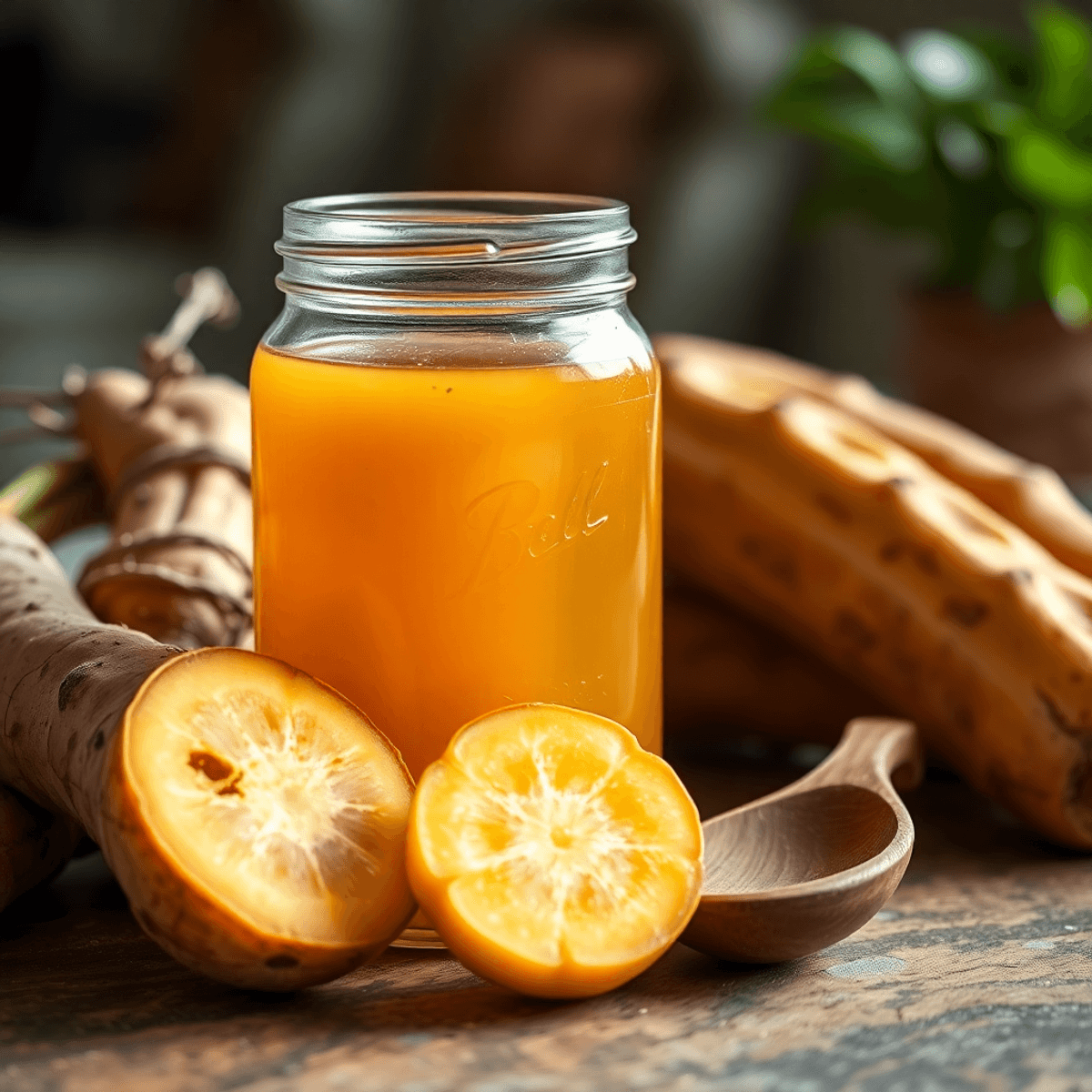What’s the Safest Sugar Alternative for Diabetics?
Living with diabetes requires careful attention to dietary choices, making the selection of the right sugar alternatives for diabetes crucial for maintaining stable blood glucose levels. The market offers diverse options for those seeking to satisfy their sweet cravings without compromising health:
- Natural sweeteners like stevia and monk fruit
- Sugar alcohols such as erythritol
- Artificial sweeteners including aspartame and sucralose
Each alternative comes with its unique properties and considerations. Some sugar alternatives for diabetes help manage blood sugar effectively, while others might trigger unexpected responses in certain individuals. Understanding these differences empowers diabetics to make informed decisions about their sweetener choices, leading to better control of their condition through mindful dietary management.

For those seeking delicious yet sugar-free cakes that align with their dietary needs, there are options available that are made with 100% almond flour and multigrain millets, making them keto-friendly and zero sugar.
Understanding Diabetes and Sugar Intake
When sugar enters the bloodstream, it triggers the pancreas to release insulin - a crucial hormone that helps cells absorb glucose for energy. For diabetics, this process becomes disrupted, leading to unstable blood sugar levels that can cause serious health complications.
Regular sugar consumption presents unique challenges for people with diabetes:
- Rapid Blood Sugar Spikes: Traditional sugar causes quick elevations in glucose levels
- Insulin Resistance: The body's decreased ability to respond to insulin
- Weight Management Issues: Sugar's high caloric content complicates maintaining a healthy weight
Considering these challenges, exploring alternatives like jaggery could be beneficial. Jaggery is often perceived as a healthier sweetener, but it's essential to understand its effects on blood sugar levels.
A balanced diet plays a vital role in managing diabetes effectively. Smart food choices help:
- Control blood glucose levels
- Reduce the risk of complications
- Support healthy weight maintenance
- Maintain consistent energy throughout the day
Selecting appropriate snacks becomes particularly important. Diabetes-friendly snacks should combine protein, fiber, and healthy fats to slow down glucose absorption. Examples include:
- Greek yogurt with berries
- Apple slices with almond butter
- Raw vegetables with hummus
- Handful of mixed nuts
In this context, sugar-free products can offer healthier alternatives. However, it's crucial to scrutinize these products as not all are created equal.
Moreover, incorporating high-protein snacks into your diet can assist in managing diabetes more effectively. These snacks not only help in stabilizing blood sugar levels but also provide necessary nutrients without added sugars. For those craving cookies or desserts while managing their weight or blood sugar levels, options like multigrain millet cookies or sugar-free weight loss desserts can be excellent choices.
Recommended Natural Sugar Alternatives for Diabetes
Nature offers several plant-based sweeteners that can help diabetics manage their blood sugar levels while satisfying their sweet cravings. Let's explore three standout options:
1. Stevia
Stevia is derived from the Stevia rebaudiana plant native to South America. It has zero calories and zero glycemic impact, making it a suitable choice for diabetics. The FDA has approved stevia in its pure form, and it contains compounds that may improve insulin sensitivity.
Available forms of Stevia:
- Pure leaf extract (most beneficial)
- Commercial blends (check for added sugars)
- Liquid drops
- Baking blends

2. Monk Fruit Extract
Monk fruit extract is an ancient Chinese sweetener made from the Siraitia grosvenorii fruit. It contains powerful antioxidants called mogrosides and has zero calories and zero carbs. Unlike regular sugar, monk fruit extract does not raise blood sugar levels and also possesses natural anti-inflammatory properties.
Ideal uses for Monk Fruit Extract:
- Hot beverages
- Smoothies
- Baked goods
3. Yacon Syrup
Yacon syrup is extracted from yacon root tubers and is rich in fructooligosaccharides (FOS), which act as a prebiotic fiber. This means that yacon syrup supports beneficial gut bacteria and may help reduce insulin resistance. It contains only 20 calories per tablespoon, making it a low-calorie sweetener option.
Best uses for Yacon Syrup:
- Morning coffee
- Drizzled over yogurt
- Raw desserts

These natural alternatives provide sweetness without the blood sugar spikes associated with regular sugar, making them valuable additions to a diabetic-friendly diet. Additionally, incorporating low carb options like Millet Cakes into your meals can further aid in managing diabetes due to their low GI and diabetic-friendly nature.
Sugar Alcohols: A Middle Ground for Diabetics
Sugar alcohols offer a unique balance between natural and artificial sweeteners. These compounds, found naturally in fruits and fermented foods, provide sweetness with fewer calories than regular sugar.
Unlike artificial sweeteners, sugar alcohols are partially digested carbohydrates that don't require insulin for processing. Their molecular structure combines alcohol and sugar characteristics, allowing them to activate sweet taste receptors while maintaining blood glucose stability.
Erythritol, a prominent example of sugar alcohols, stands out for several reasons. It contains just 0.24 calories per gram, causes minimal digestive discomfort compared to other sugar alcohols, demonstrates excellent blood sugar control properties, provides 70% of sugar's sweetness, and shows antioxidant properties. For a deeper understanding of its benefits and risks as a sugar substitute, you can explore this detailed article about erythritol.
The body absorbs erythritol differently from other sugar alcohols - about 90% passes through the system unchanged, making it particularly gentle on blood sugar levels. This unique metabolism pattern creates minimal impact on insulin response, offering diabetics a reliable option for sweetening foods and beverages.
Incorporating various sugar alternatives for diabetes into your diet can aid in managing blood sugar levels effectively while still enjoying sweetness. While sugar alcohols present a viable alternative, individual responses vary. Starting with small amounts helps identify personal tolerance levels and potential effects on blood sugar management.
Moreover, it's crucial to be aware of the overall landscape of zero-sugar sweeteners. Understanding the science behind these sweeteners can aid in making informed choices about which ones to incorporate into your diet.
For those looking for guilt-free indulgences, consider trying Artinci's range of sugar-free cookies. These cookies are made with 100% almond flour and packed with seeds and nuts goodness, proving that you can enjoy delicious treats without the added sugars!
Artificial Sweeteners: Pros and Cons for Diabetics
FDA-approved artificial sweeteners offer diabetics a zero-calorie option to satisfy sweet cravings without impacting blood sugar levels. Common choices include:
- Aspartame
- Sucralose
- Saccharin
- Acesulfame Potassium (Ace-K)
These sweeteners can help reduce caloric intake and maintain stable blood glucose levels when used as sugar substitutes in beverages, baked goods, and other foods.
Potential Concerns with Long-Term Use
Recent studies raise concerns about long-term artificial sweetener consumption. Research published in the Journal of Clinical Medicine suggests potential links to:
- Altered gut microbiome composition
- Increased glucose intolerance
- Unexpected weight gain
- Changes in appetite regulation
- Metabolic disruptions
The Impact of Intense Sweetness
The intensity of artificial sweeteners - up to 600 times sweeter than sugar - might alter taste preferences and natural metabolic responses. Some studies indicate these substances could trigger insulin release despite their zero-calorie content, potentially complicating diabetes management.
Comparing Popular Sugar Alternatives for Safety and Effectiveness
Let's break down the key features of the most reliable sugar alternatives for diabetes:
1. Stevia
- Zero calories and carbohydrates
- 200-350 times sweeter than sugar
- Minimal impact on blood glucose
- Potential bitter aftertaste
- Best for: beverages, sauces, dressings
2. Monk Fruit
- Zero calories and carbohydrates
- 150-200 times sweeter than sugar
- No reported side effects
- Limited availability, higher cost
- Best for: baking, smoothies, hot drinks
3. Erythritol
- 0.24 calories per gram
- 70% as sweet as sugar
- Minimal digestive issues compared to other sugar alcohols
- Cooling sensation in mouth
- Best for: baking, cooking, one-to-one sugar replacement
Each alternative brings unique benefits to the table. Stevia shines in everyday drinks and cooking, while monk fruit excels in baked goods without the bitter aftertaste. Erythritol's similarity to sugar makes it ideal for recipes requiring precise measurements. Your choice might depend on taste preferences, intended use, and individual glucose response.
Incorporating Safe Sugar Alternatives for a Diabetic Diet
Transform your favorite recipes into diabetes-friendly versions with these practical substitutions:
Breakfast Options
- Add stevia drops to morning coffee or tea
- Sprinkle monk fruit sweetener on oatmeal
- Mix erythritol into yogurt parfaits
Baking Tips
- Replace sugar with stevia (1 cup sugar = 1 teaspoon stevia powder)
- Use monk fruit in cookies and muffins (1:1 ratio)
- Combine erythritol with almond flour for low-carb treats
Quick Diabetic-Friendly Dessert Ideas
- Sugar-free chocolate mousse with stevia
- Berry crumble topped with monk fruit-sweetened crunch
- Vanilla chia pudding sweetened with erythritol
- No-bake cheesecake using your preferred sugar alternative
For those who prefer ready-made options, consider exploring the sugar-free diabetic friendly sweets product range available at Artinci. They offer a variety of sugar free sweets and desserts, including keto-friendly options which are ideal for those on the Keto diet. Remember to test your blood sugar after trying new products to understand how different sugar alternatives for diabetes affect your body personally.
Disclaimer: Please note that individual responses to sugar alternatives may vary. It's essential to monitor your glucose levels and consult with a healthcare provider before making significant dietary changes, especially if you have specific health concerns or conditions like diabetes.
FAQs
1.What is the safest sugar alternative for diabetics to use in their diet?
The safest sugar alternatives for diabetics include natural sweeteners like stevia and monk fruit extract, as well as sugar alcohols such as erythritol. These options have minimal impact on blood glucose levels and are generally recommended for effective diabetes management.
2.How do natural sugar substitutes like stevia and monk fruit benefit diabetics?
Natural sugar substitutes like stevia and monk fruit are low-glycemic sweeteners that help manage blood sugar levels without causing spikes. Stevia is FDA-approved and offers benefits such as zero calories, while monk fruit extract also provides sweetness without increasing insulin response, making them healthy alternatives for diabetics.
3.What are sugar alcohols, and why are they considered a middle ground for diabetic sugar substitutes?
Sugar alcohols, such as erythritol, are carbohydrates that provide sweetness with fewer calories and a minimal effect on blood glucose compared to regular sugar. They differ from artificial sweeteners by being naturally derived and can be safely used by diabetics to reduce calorie intake while managing blood sugar levels.
4.Are there any risks associated with using artificial sweeteners for people with diabetes?
While FDA-approved artificial sweeteners are commonly used by diabetics, emerging research suggests potential risks like glucose intolerance and weight gain with long-term use. Therefore, it's important to use artificial sweeteners cautiously and consider natural or sugar alcohol alternatives when managing diabetes.
5.How can diabetics incorporate safe sugar alternatives into their daily meals and snacks?
Diabetics can incorporate safe sugar alternatives by using stevia, monk fruit extract, or erythritol in cooking and baking recipes. These substitutes work well in diabetic-friendly desserts and snacks, helping maintain blood sugar control while enjoying sweet flavors without added risks.

